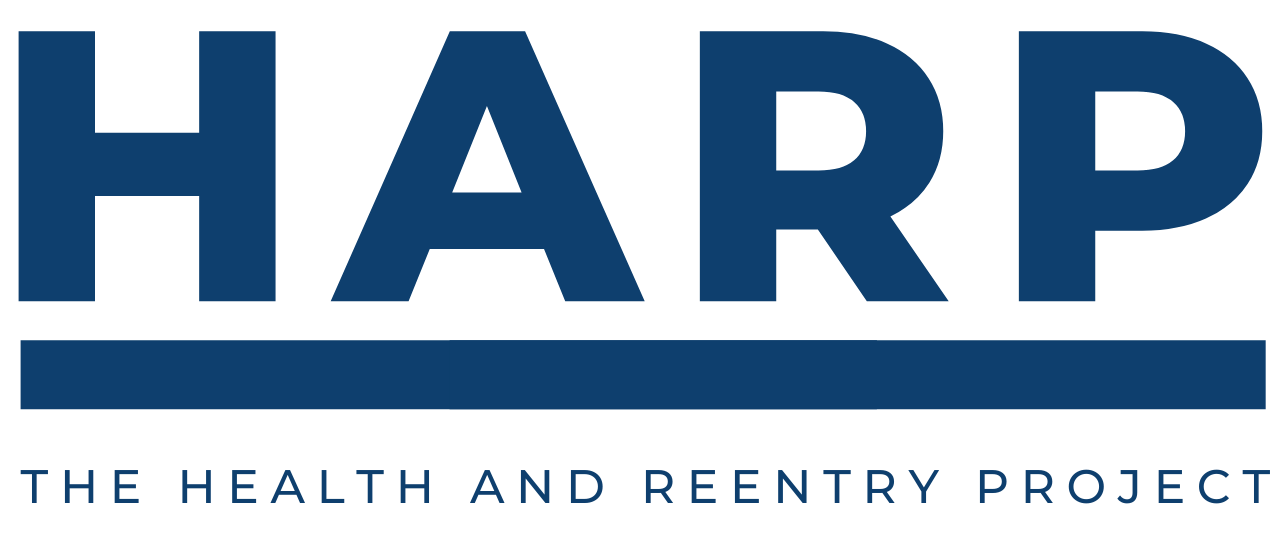Applications to the State Reentry Learning Collaborative are due by Friday, April 26, 2024 at 8 p.m. ET. To apply, complete the application form and submit it to Tier McCullough (tmccullough@nashp.org).
The National Academy for State Health Policy (NASHP), in collaboration with The Health and Reentry Project (HARP) and with support from Arnold Ventures, will convene states for a State Reentry Learning Collaborative. Reentry, the time when a person is transitioning to the community after a period of incarceration, is an extremely risky time for people’s health and well-being. Formerly incarcerated people experience elevated rates of mortality, rearrests, and reincarceration. States recognize the gaps in continuity of health care for individuals released from prisons and jails to communities and coordination of care for other health-related social needs. The federal government has begun making historic changes to the Medicaid program, including allowing states for the first time to provide Medicaid coverage for adults for non-emergency services prior to release through Medicaid waivers.
The 18-month learning collaborative will be available to up to five states with a pending or approved section 1115 demonstration waiver request that includes demonstrations to improve care transitions for incarcerated individuals exiting public institutions. The goal of the learning collaborative is to support states with strategies to improve outcomes for people navigating transitions from incarceration to the community. States selected for the State Reentry Learning Collaborative will be part of a unique opportunity to receive timely targeted technical assistance from national experts and engage with a cohort of states leading the way in this groundbreaking work. This project includes supporting policy, programmatic, and resource alignment (across Medicaid, health and human services, corrections, and with local partners) to prepare for implementation of pending and approved reentry waivers. Technical assistance will focus on strengthening cross-agency and state-local partnerships; logistical and operational specifics of implementing pre-release coverage; meaningfully engaging directly impacted individuals; fostering a quality continuum of care among health and human service providers, correctional settings, reentry planning, and the community; developing stronger information-sharing systems and practices; and aligning accountability, oversight, and evaluation, among other topics.
This project is a partnership between NASHP and The Health Reentry Project (HARP).

Application and Selection Process
- Each state team must complete an application form and submit it to Tier McCullough (tmccullough@nashp.org) by Friday, April 26, 2024 at 8 p.m. ET/ 5pm PT.
- NASHP will review states’ application forms and select states to participate in the learning collaborative. All states that applied will receive notifications the week of May 13, 2024.
Any questions about the application process should be directed to Tier McCullough (tmccullough@nashp.org).
State Reentry Learning Collaborative Timeline
- Tuesday, March 19, 2024: Application form released
- Thursday April 4, 2024, at 2 p.m. ET/ 11 a.m. PT: Informational webinar for interested states
- Monday April 8, 2024, at 4 p.m. ET/ 1 p.m. PT: Informational webinar for interested states
- April 26, 2024, by 8 p.m. ET: Application forms due to NASHP
- Week of May 13, 2024: Selected state teams notified
- May 2024: Learning collaborative kick-off
- TBD, June/July 2024: In-person kick-off meeting
- May 2024–October 2025: Individual state technical assistance, convenings, multi-state learning calls, and webinars
What Will States Gain during the Institute?
Learning collaborative participants will have access to a unique opportunity for states that are leading this groundbreaking work to collaborate, learn from each other, and work with national experts, including The Health and Reentry Project (HARP). Specific opportunities and resources will include:
- Facilitated peer-learning opportunities
- National, state, and local subject matter experts
- State-specific technical assistance
- Tools and resources to support policy and implementation
Learning collaborative activities will include:
Individual Technical Assistance
Each state team will develop a state-specific strategic work plan, including priorities, goals, action steps, and timelines to be completed during the learning collaborative. Each state team will participate in every other month (and as-needed) technical assistance Zoom calls with NASHP staff and HARP experts to facilitate cross-sector execution of the work plan. States will have the opportunity during these calls to identify and address emerging technical assistance needs. States will have ongoing access to NASHP and HARP staff, who will provide a timely and actionable response to all inquiries, including connections to external experts when necessary to support initiative planning, development, and implementation.
Possible technical assistance topics include but are not limited to:
- Strengthening cross-agency and state-to-local partnerships to implement a whole-of-government approach
- Logistical and operational specifics of implementing Medicaid-covered pre-release services, such as:
- Building systems and processes for determining Medicaid eligibility and enrolling beneficiaries pre-release
- Operationalizing release dates
- Considering and addressing operational and logistical differences for implementation in prisons, jails, and juvenile justice facilities
- Provider criteria and selection
- Strategies to meaningfully engage individuals directly impacted by the policies, programs, and implementation approaches into the policymaking and implementation process
- Fostering a quality continuum of care across the correctional health care system, state and local health and human services system, corrections, public safety, and community supervision systems to facilitate seamless transition from corrections to communities
- Fostering relationships with community-based organizations to support the continuum of care and to meet the health-related social needs of people transitioning to their community
- Developing, advancing, and beginning to implement strategies for data sharing, including for automated information exchange
- Building provider capacity and addressing workforce needs in corrections, state, and local agencies, and for those providing direct services
- Developing oversight and accountability strategies and aligning with evaluation approaches
State-to-State Learning Calls
State-to-state learning calls will be held approximately quarterly and will include virtual learning opportunities to allow states to hear about work going on in other states, identify areas of shared need, discuss emerging challenges, exchange with people who are directly impacted, and receive expert technical assistance. Topics for each group learning opportunity will be developed collaboratively to meet priority technical assistance needs identified by participating states. There is also the opportunity for affinity group breakouts for cross-state exchange to supplement state-specific calls.
In-Person Meetings
Participating state teams will be invited to attend two in-person convenings that will provide additional opportunities for shared learning, teamwork, and expert-informed peer discussion. Meetings will take place during each project year (exact time and location to be determined). Up to four core team members are expected to attend in person, and funding will be available to cover associated travel and meeting expenses. State teams may bring additional members at their own expense.
Expectations of Participation
By committing to this initiative, each state team will be expected to:
- Maintain a core team of state officials with decision-making authority from the state’s Medicaid agency, mental health and substance abuse (or combined behavioral health) agencies, corrections agencies, and any other agencies required to implement the state’s goals, and/or prominent county leads. States are welcome to have additional team members (see below).
- Develop a project plan and work toward accomplishing goals and actionable steps to achieve these goals.
- Participate in every other month individual team technical assistance calls with NASHP and HARP staff to further implementation, share opportunities and barriers, and identify any emerging technical assistance needs.
- Participate in multi-state convenings (in person and virtual).
State Teams
Teams must include:
- At least one team member from senior Medicaid leadership
- At least one team member from senior mental health and substance abuse (or combined behavioral health) agency leadership
- At least one team member from senior corrections/ justice agency leadership
- At least one team member with decision-making authority that represents other agencies with resources and/ or programs relevant to the state goals (for example, juvenile justice, public health, human services, education, workforce and jobs, children and family, etc.)
- [Optional] Others based on state’s project focus (for example, governor’s office, secretary or director of health and human services, key sheriff partners and/or county officials, community supervision, courts, data analytics, community/economic development, and/or state legislature, people with lived expertise).
Interested state teams should complete and submit an application by 8 p.m. ET on April 26, 2024. Accepted state teams will be notified the week of May 13, 2025. Questions and applications should be directed to Tier McCullough (tmccullough@nashp.org).


